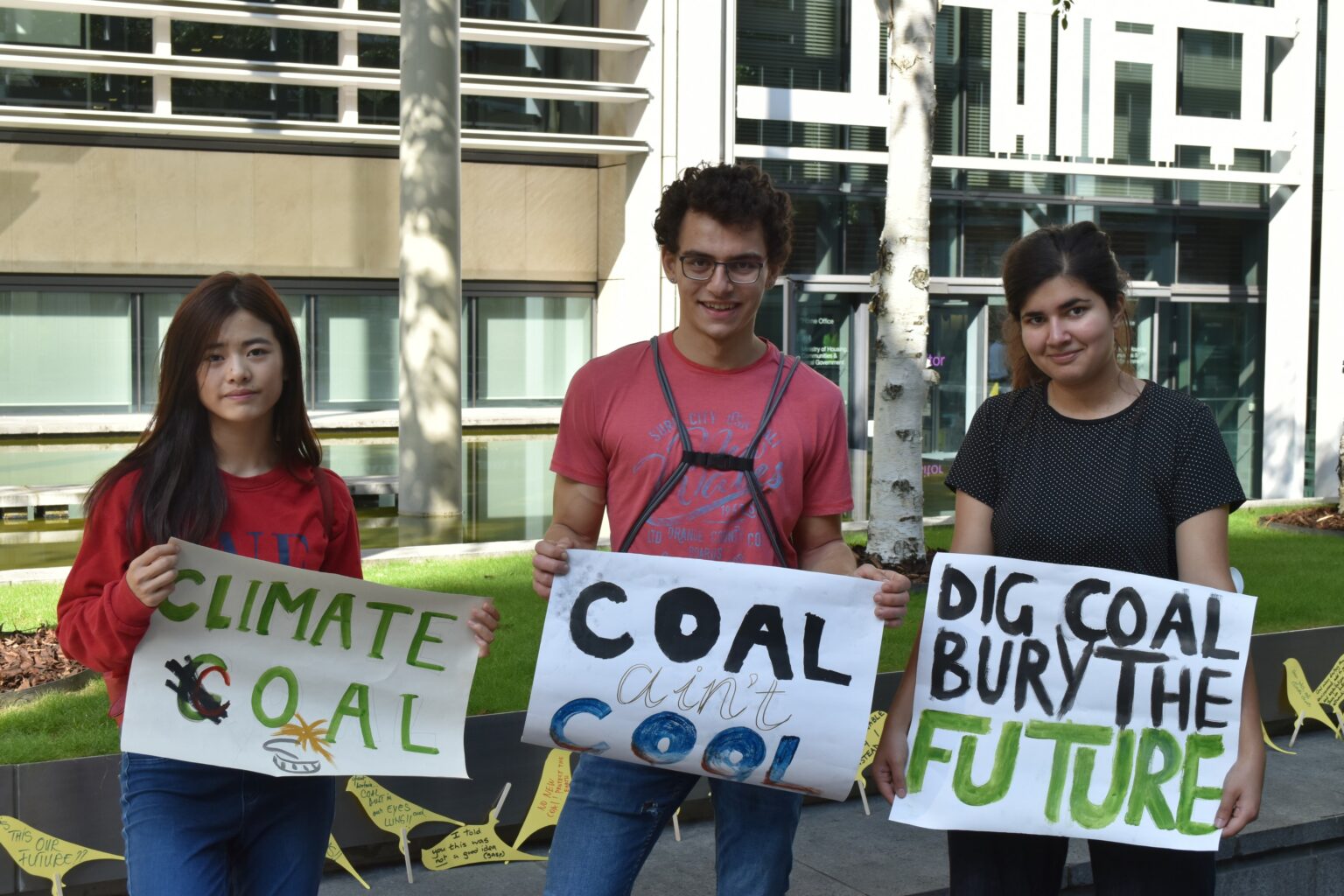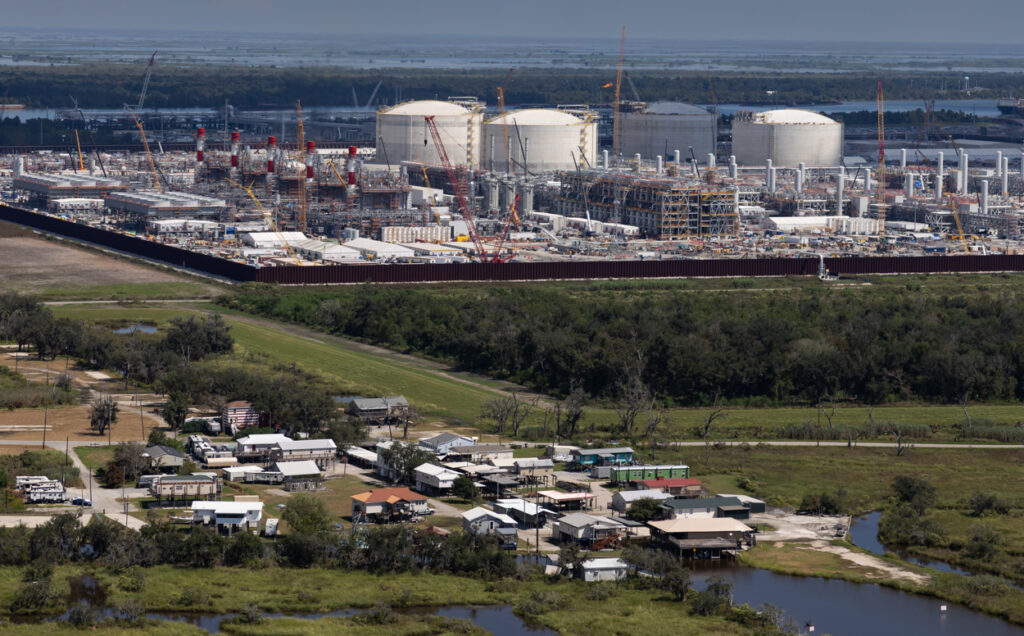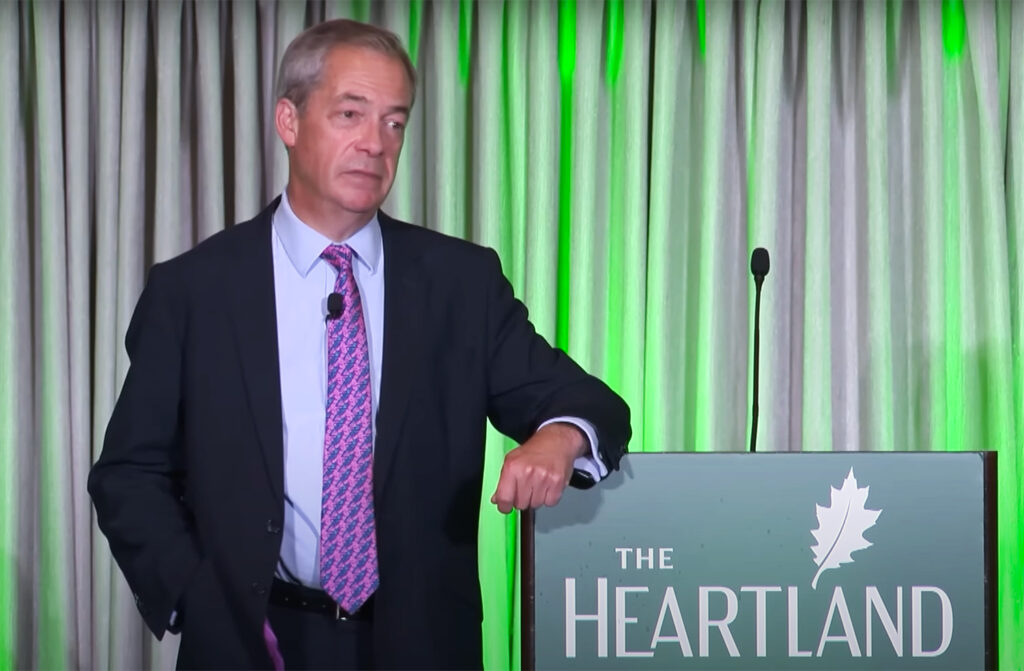Anti-coal campaigners gathered in Westminster today to call on the government to scrap what they called “insane” plans for a new coal mine in West Cumbria.
Activists left messages opposing the mine on cut-outs of yellow canaries outside the Ministry of Housing, Communities and Local Government, as a four-week public inquiry into plans for the UK’s first new deep coal mine in over 30 years begins today.
The inquiry represents the final opportunity for ministers to reject the project, which the Green Alliance thinktank estimates would emit 8.4 million tonnes of carbon dioxide equivalent annually up until 2049, a year ahead of the UK’s net zero emissions target.
The mine still enjoys support from MPs with constituencies in the area, but yesterday Tory MP for Copeland, Dr Neil Hudson, announced he would be withdrawing his support for the project ahead of COP26. In a submission to the inquiry seen by The Independent, Hudson said that recent extreme weather events and the UK’s leadership role as hosts of the upcoming COP26 climate summit had led to his change of heart.
A simultaneous demonstration was held outside the site of the proposed coking mine, the Woodhouse Colliery near Whitehaven. Developers plan to remove coking coal from beneath the Irish Sea to produce steel for the UK and Europe.
“We have to keep this coal mine in the spotlight, even after COP26, until the decision is made,” said community campaigner Jill Perry, whose speech in West Cumbria was transmitted to the London protest over speakerphone.
“I think the government is hoping that this mine will fall off the radar,” Perry added. “We have to keep working together.”
Canaries in the Coal Mine
The protests were coordinated by Coal Action Network, along with local campaign group South Lakes Action on Climate Change (SLACC) and Friends of the Earth.
“No new coal”, “Stop ecocide” and “Wrong direction” were among the messages left on a row of yellow paper canaries lined up outside Housing Secretary Robert Jenrick’s department.
The action is an allusion to the old mining practice of bringing a caged canary down a coal mine, to test if conditions underground were too toxic for miners, with campaigners comparing humans to the canaries.
Anne Harris, a campaigner at Coal Action Network, thanked protesters for helping win previous battles against opencast coal mines for thermal coal, including plans to extend Bradley opencast mine in County Durham last year.
“It doesn’t have to be that we continue to extract from the earth to continue to have a good life – in fact the opposite is very often true,” she said.
Global Issue
The protest also featured a speech by Javiera Martinez, a human rights activist from Columbia and student at SOAS University, who called on the power of collective global solidarity as she spoke of oppression against land defenders in Latin America.
“When we defend our land we are criminalised, oppressed and murdered,” she said, adding that local and global struggles were interlinked: “In our world everyone is connected – we are here to support and offer solidarity.”
Grace Onions, an Extinction Rebellion activist, told DeSmog that plans for the mine were “completely nuts – insane”.
“Even to consider opening a coal mine anywhere in this climate and ecological emergency is mad… we must leave all the coal and gas in the ground.”
‘UK Hypocrisy’
Controversy over the mine has plagued plans by developers West Cumbria Mining Ltd. Last year, Cumbria County Council’s approval of the application led to widespread public condemnation as campaigners accused the UK government of hypocrisy.
West Cumbria Mining has argued the mine would create over 500 new jobs, creating a much-needed economic boost for the area.
But campaigners argue that the government should instead be encouraging the growth of green jobs and facilitating the decarbonisation of the steel industry.
Responding to intense public pressure, the government “called in” the decision in March and will now have the final say on whether the fossil fuel project goes ahead.
The government’s expert climate advisers, the Climate Change Committee, have said the mine gives a “negative impression of the UK’s climate priorities” in the year it is hosting the COP26 climate summit and would have an “appreciable impact” on the UK’s carbon budgets.
The public inquiry, which will take place virtually, will see a number of MPs give evidence both in favour and against the mine, as well as representatives of environmental groups and of West Cumbria Mining. After the inquiry, the planning inspectorate will consider their recommendation, before the government makes a final decision, in a process likely to take several months.
A Government spokesperson said: “The UK was the first major world economy to pass a net zero emissions target into law.”
Referring to a planned end to thermal coal, used to generate electricity, they added: “Coal has no part to play in our future power generation and will be phased out by 2024 – a year earlier than planned, which is on top of important steps we are taking to decarbonise industries that still rely on coal.”
West Cumbria Mining Ltd has been approached for comment.
Subscribe to our newsletter
Stay up to date with DeSmog news and alerts







